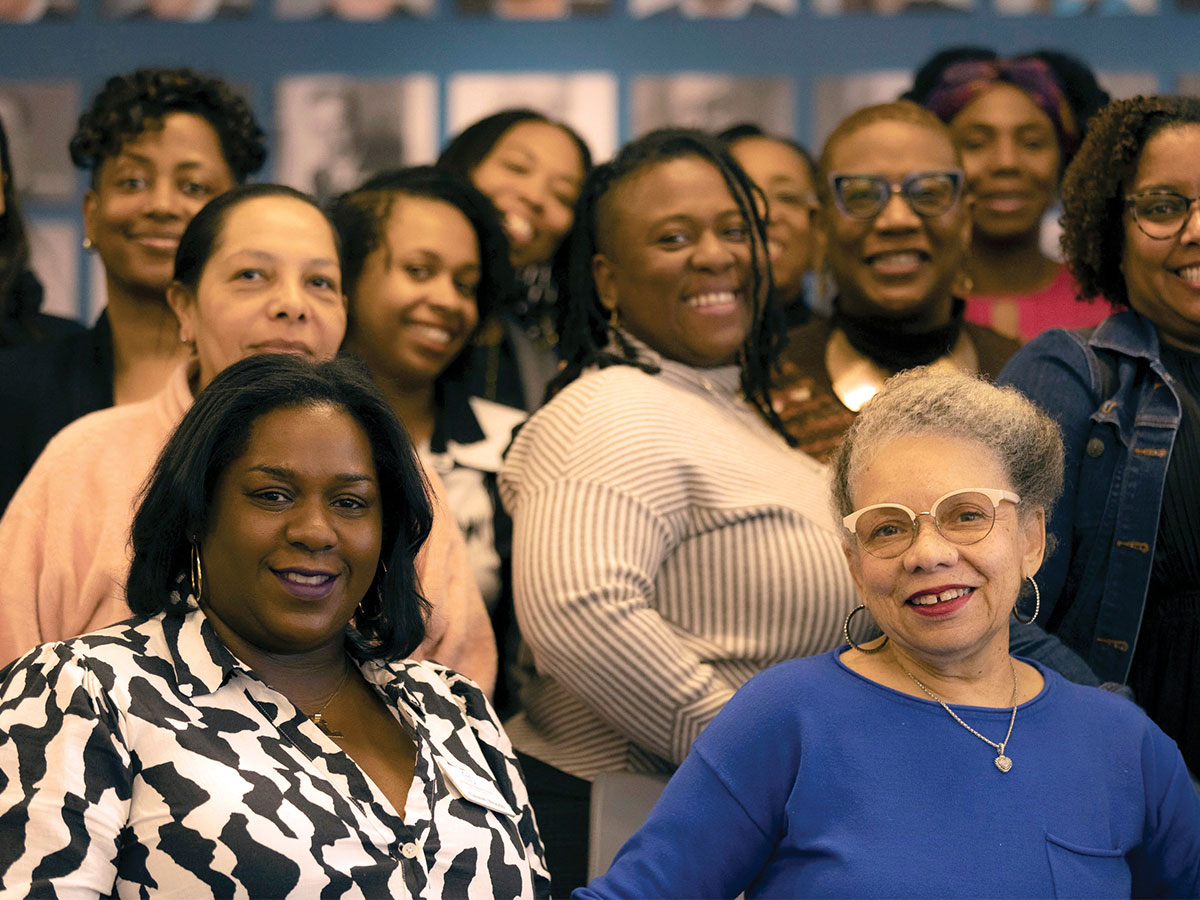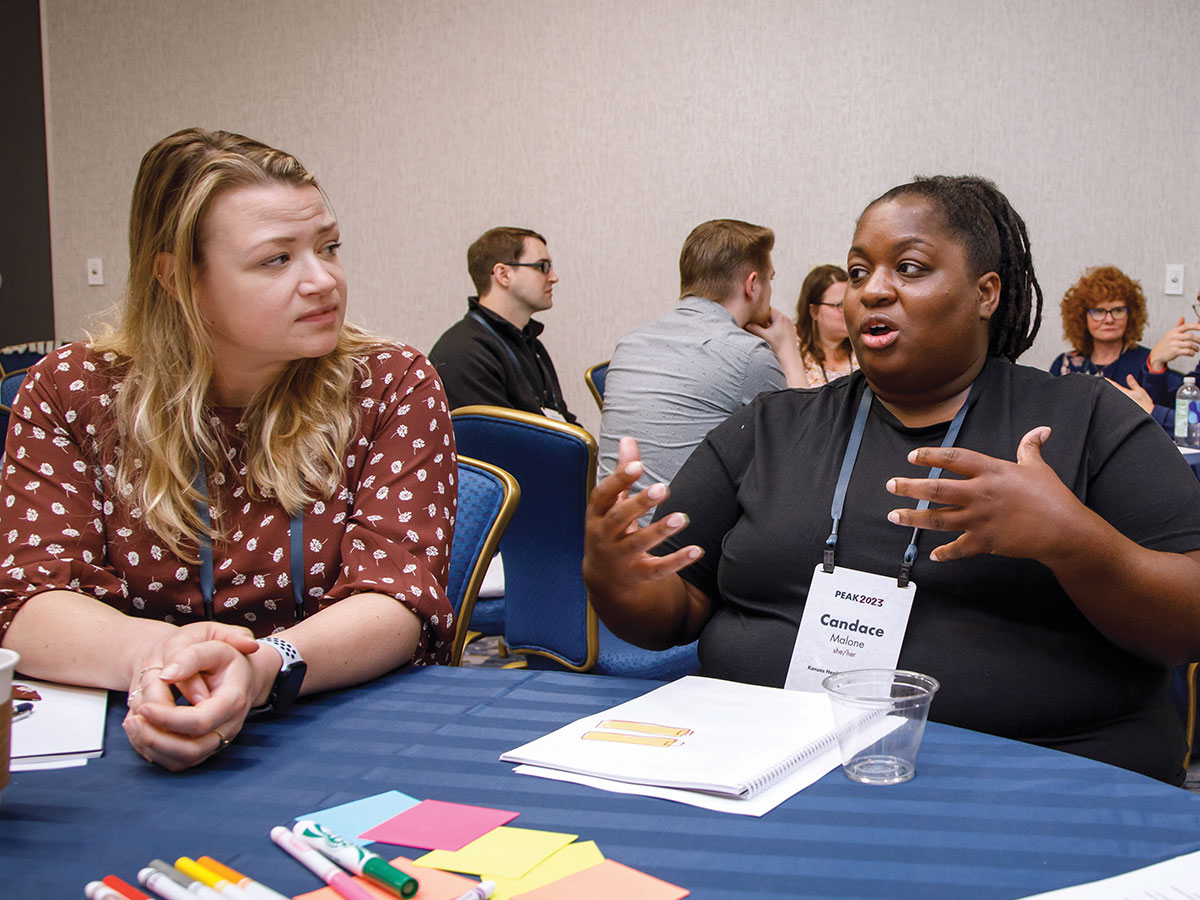Journal | Issue 16
Diversity, Equity & Inclusion
How to Support Black Professionals Through Philanthropic Culture and Grantmaking Practice

Culture
Culture beats strategy every time. When you make an explicit connection between your values and your organizational culture, norms, and practices, you will hire and retain a more diverse staff. Consider these recommendations for developing a more equitable and inclusive organizational culture that clearly demonstrates how you value diversity, equity, and inclusion.
Emphasize race equity over diversity
Focus on race equity explicitly, emphasizing the structures, roles, processes, and practices that negatively impact people of color inside and outside of organizations, and outlining specific tactics to mitigate them as part of a process to drive race equity within an organization’s culture.
Awake to Woke to Work, Equity in the Center
Nurture inclusive cultures and professional standards
An organization’s board members, executive team, and staff need appropriate training to help them understand potential roadblocks to maintaining staff diversity, and work within their institutions to promote a culture that values the unique and diverse skill sets of employees.
The Exit Interview, ABFE
Implement race-conscious hiring and promotion practices
Implement hiring and promotion policies and practices that address issues of implicit bias. Organizations should also regularly inventory their own success in hiring and advancing staff of color.
The Exit Interview, ABFE
Lead with values
Effective grantmaking organizations deliberately connect the “how” of grantmaking to values, strategy, and impact.
Action Planner: Strategies for Aligning Practices and Values, PEAK Grantmaking
Use mentoring, coaching, and professional development
New Black philanthropic professionals need training on how to navigate philanthropy, as well as mentoring and coaching to inform how they approach the grantmaking craft.
The Exit Interview, ABFE
Create affinity spaces
People of color should have their own cohorts where they can openly express the ways they experience racialized barriers and find support and advice from their peers, including access to networks that can help them advance.
Race to Lead: Confronting the Nonprofit Racial Leadership Gap, Building Movement Project
Practice
Elements of organizational culture, implicit bias, and positional power, combined with our personal outlook, inform how we approach both trust and risk as it relates to our grantees. Consider these recommendations for developing more equitable grantmaking practices that clearly demonstrate how you value diversity, equity, and inclusion.
Cultivate your personal power
Recognize and use the positional power you hold in your organization; find allies across staff, board, and other stakeholders to advocate for change; and develop a shared commitment to embed equitable grantmaking practices.
2018 Research on Equitable Practices, Frontline Solutions and PEAK Grantmaking
Implement more flexible practices
When we provide funding that gives nonprofits space to innovate and the security to know our support is here for the long haul, they worry less about their own survival and focus more on responding to shifts in their environment and lifting up their communities.
Grantmakers for Effective Organizations
Implement race-conscious grantmaking practices
Analyze data to understand which communities are getting left out of funding streams and why. Adjust practices to meet the needs of grantees and applicants targeting historically marginalized communities.
2018 Research on Equitable Practices, Frontline Solutions and PEAK Grantmaking
Practice smarter risk management
In a recent study, the Open Road Alliance identified that funder-created obstacles present the most risk to impact for nonprofits. Collecting and sharing risk data can help a foundation understand the types of risk that are keeping nonprofits from achieving grant results. Naming and contextualizing risk keeps us from relying on gut feelings about what or who is risky.
Roadblock Analysis Report, Open Road Alliance
Put in the extra effort to develop trusting relationships
We heard the importance of “picking up the phone and asking questions” and “trust” as important elements allowing funders to take calculated risks. Processes that rely heavily or solely on paperwork might be more biased toward risk aversion and favor organizations led by a white person.
2018 Research on Risk Management and Equity, Arabella Advisors and PEAK Grantmaking
Learn from community
The current evaluation paradigm includes definitions and expectations around validity, rigor, bias, and objectivity that honors particular types of knowledge, evidence, and truth. This looks for generalizable and scaled data and findings that often feel disconnected and not reflective of the values of the nonprofit or community partner, particularly those engaged in equity, inequality, or social justice work.
The Equitable Evaluation Initiative



